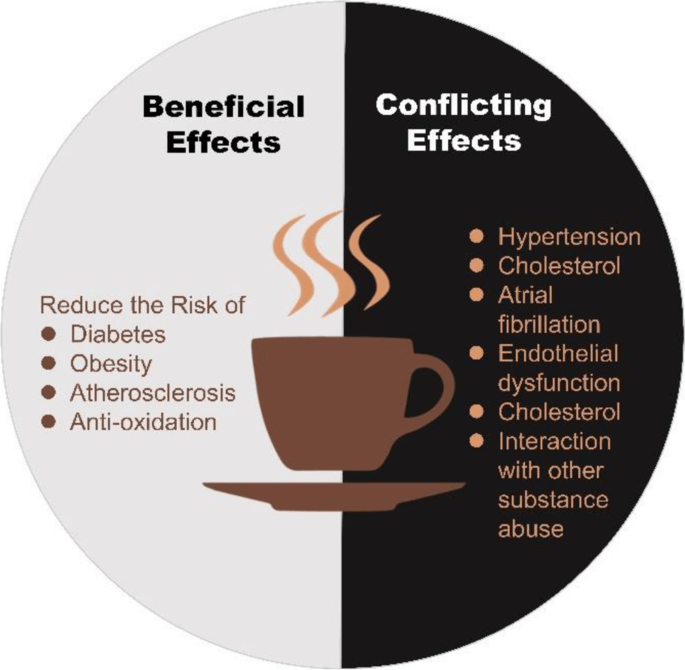Have you ever considered what hidden health risks might be lurking in your cup of coffee?
Many people rely on coffee as their morning pick-me-up or a companion during a tough day. While it’s true that coffee has its benefits—like boosting your energy levels and providing a substantial source of antioxidants—there are also some hidden health risks associated with habitual coffee consumption. Understanding these risks is vital for your overall well-being and making informed choices about your diet.
The Hidden Health Risks of Coffee
Coffee is one of the most widely consumed beverages in the world, and its popularity is growing. Nevertheless, before you pour your next cup, it’s essential to understand the potential downsides to frequent coffee consumption.
What Problems Can Coffee Cause?
Coffee can be responsible for a range of health issues, from the relatively mild to the more severe. Let’s explore these in detail:
1. Sleep Disruptions and Insomnia
Caffeine is a powerful stimulant that can affect your sleep pattern. Consuming coffee, especially late in the day, can interfere with your body’s ability to fall asleep or stay asleep. This is because caffeine blocks adenosine, a neurotransmitter that promotes sleep.
How to mitigate: If you have trouble sleeping, try to limit your coffee intake to the early hours of the day and avoid it at least 6-8 hours before bedtime.
2. Increased Anxiety and Stress
While a cup of coffee can initially make you feel alert and focused, it can also increase anxiety and stress levels. High doses of caffeine can stimulate your “fight or flight” response, causing symptoms such as rapid heart rate, sweating, and nervousness.
Tip: Stick to moderate consumption to keep your anxiety levels in check, and consider switching to decaffeinated options if necessary.
3. Digestive Issues
Coffee is acidic and can irritate the lining of your stomach, leading to digestive issues such as acid reflux, gastritis, or even ulcers. People with gastrointestinal disorders should be particularly cautious.
Suggestion: Consuming coffee with food can help mitigate these effects, as it reduces the acidity that impacts your stomach lining.
4. Heart Palpitations and Blood Pressure
Caffeine can stimulate your heart, leading to palpitations and elevated blood pressure. Although these symptoms are generally mild for most people, they can be more severe for those with existing heart conditions.
Advice: Monitor your heart rate and blood pressure when consuming coffee. If you notice significant changes, it may be best to reduce your intake.
5. Dehydration
Caffeine has diuretic properties that can lead to increased urination and potential dehydration if you’re not drinking enough water.
Solution: Balance your coffee consumption with adequate water intake to keep your body well-hydrated.
6. Dependence and Withdrawal Symptoms
For many, coffee becomes a daily necessity, leading to dependence. Missing your regular coffee fix can result in withdrawal symptoms such as headache, fatigue, irritability, and difficulty concentrating.
Strategy: Gradually reduce your caffeine intake if you want to cut back to minimize withdrawal symptoms.

Long-term Health Risks
Short-term issues aren’t the only concerns; long-term coffee consumption can also pose significant health risks.
1. Bone Health
Excessive coffee intake can interfere with calcium absorption, contributing to bone density loss over time and increasing your risk of osteoporosis.
Preventative Measure: Ensure adequate calcium intake through your diet or supplements if you’re a heavy coffee drinker.
2. Cardiovascular Health
While moderate coffee consumption has been linked to some heart health benefits, excessive intake can increase your risk for cardiovascular diseases. Studies have shown that high caffeine consumption can lead to higher cholesterol levels and increased risk of heart attack or stroke.
Recommendation: Keep consumption at a moderate level, typically considered to be 3-4 cups per day or less.
3. Pregnancy Complications
For pregnant women, caffeine can cross the placenta and affect fetal development. High caffeine intake has been linked to low birth weight, preterm birth, and even miscarriage.
Guideline: Health experts generally advise pregnant women to limit caffeine intake to under 200 mg per day, roughly equivalent to one 12-ounce cup of coffee.
The Psychology of Coffee Addiction
It’s not just your body that can be affected by too much coffee; the habit can have psychological repercussions too.
Behavioral Dependence
Many people develop a psychological dependence on coffee, using it as a crutch to get through their day. This can lead to anxiety and stress, especially in situations where coffee is not available.
Insight: Being aware of your reliance on coffee can help you make more balanced lifestyle choices.
Social Factors
Coffee is often a social beverage, associated with various social activities and routines. This can make it harder to cut back, as you may feel socially pressured to drink it.
Tip: Explore alternative social activities that don’t revolve around coffee, like herbal tea gatherings or smoothie meet-ups.

Are There Any Safe Limits?
Wondering how much coffee is too much? The answer is not one-size-fits-all, but general guidelines can help.
| Consumption Level | Daily Intake | Risk Level |
|---|---|---|
| Low | 1-2 cups/day | Generally safe |
| Moderate | 3-4 cups/day | Low risk |
| High | 5+ cups/day | Elevated risk |
Conclusion: Moderation is key. Aim for a balanced approach to enjoy coffee without compromising your health.

Healthier Alternatives to Coffee
If you’re concerned about the hidden health risks of coffee, there are several healthier alternatives to consider:
1. Herbal Teas
Herbal teas like chamomile, peppermint, or rooibos provide a warm, flavorful beverage without the caffeine.
2. Green Tea
Green tea contains less caffeine than coffee and is packed with antioxidants, making it a healthier option for your morning routine.
3. Chicory Coffee
Chicory root can be brewed like coffee but is naturally caffeine-free. It also offers a similar taste profile, making it a popular option among those looking to reduce caffeine.
4. Golden Milk
This turmeric-based drink not only tastes good but also offers anti-inflammatory benefits, making it a great alternative.
Final Thoughts
Understanding the hidden health risks of coffee enables you to make better choices for your well-being. While coffee can be a delightful part of your daily routine, it’s essential to be aware of its potential downsides and consume it in moderation. If you experience any adverse symptoms, consider reducing your intake or exploring healthier alternatives.
Listening to your body and making informed choices can help you enjoy coffee without the hidden health risks affecting your overall health and happiness.

